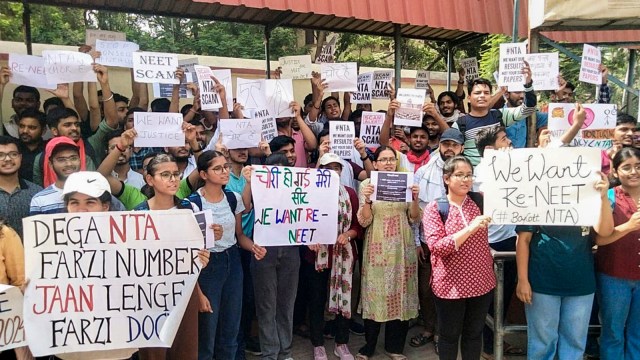As the CEO of an education expert organization, I am compelled to weigh in on the recent controversy surrounding the National Eligibility-cum-Entrance Test (Undergraduate) 2024. The Indian Academy of Pediatrics (IAP) has raised serious concerns about the alleged irregularities in this year’s exam, and I believe it’s essential to examine the issue and its implications on the future of India’s medical education.

The NEET UG 2024 results have sparked a heated debate, with 67 candidates securing the 1st rank with a perfect score of 720. While this may seem like a remarkable achievement, it raises several red flags. As Dr. G V Basavaraja, IAP national president, pointed out, this anomaly is quite questionable when compared to the data and statistics provided by the National Testing Agency (NTA) for the past few years.
The need for transparency and accountability
The NEET UG exam is a crucial gateway to India’s medical education system, with lakhs of students vying for a limited number of seats. It’s essential that the exam process is fair, transparent, and free from any irregularities. The allegations of irregularities in this year’s exam have cast a shadow of doubt over the entire process, and it’s imperative that the authorities take immediate action to address these concerns.
A Central Bureau of Investigation (CBI) probe, as demanded by the IAP, is a step in the right direction. It’s essential to get to the bottom of these allegations and ensure that the exam process is fair and transparent. The NTA must also take responsibility for the anomalies and provide a clear explanation for the unusual results.
The consequences of a flawed exam process
A flawed exam process can have far-reaching consequences, affecting not only the students who appeared for the exam but also the entire medical education system. If the allegations of irregularities are proven, it could lead to a loss of faith in the system, and the credibility of the NEET UG exam would be severely compromised.
Moreover, a flawed exam process can also lead to deserving students being denied admission to medical colleges, while undeserving candidates may gain an unfair advantage. This could have serious implications for the quality of medical education in India and ultimately affect the healthcare system as a whole.
Conclusion
The NEET UG 2024 controversy is a wake-up call for the authorities to take immediate action to address the concerns of the students and the medical fraternity. As the CEO of an education expert organization, I urge the authorities to take a proactive approach to ensure the integrity of the exam process and restore the faith of the students in the system. The future of India’s medical education depends on it.